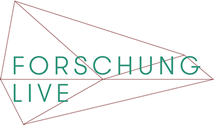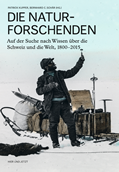EuCheMS Brussels News Updates, October 2015
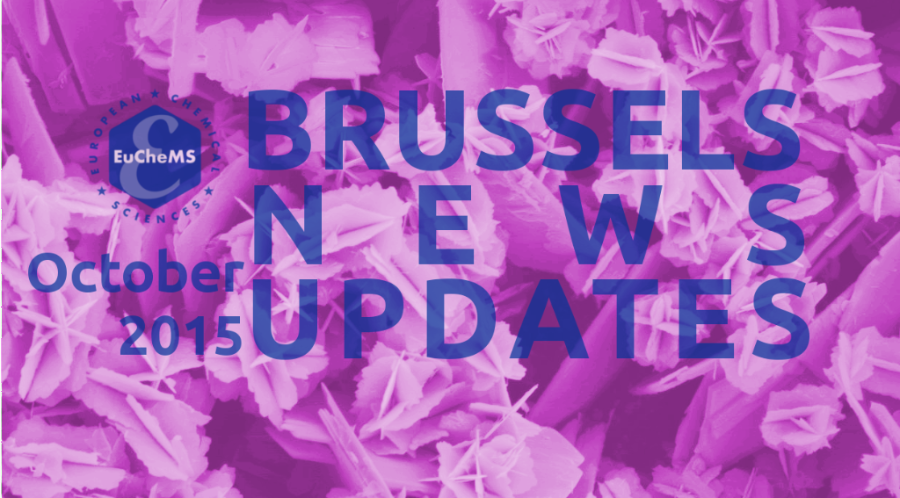
General European Highlights
2015 Chemistry Nobel Prize
The 2015 Chemistry Nobel Prize was jointly awarded to Tomas Lindahl, Paul Modrich and Aziz Sancar “for mechanistic studies of DNA repair”. You can read the scientific background on their research here. An easier to understand summary is available here.
EuCheMS would like to congratulate the awardees and hopes that this prize may inspire many chemists all around the world.
Source: http://www.nobelprize.org/
European Chemistry Societies Gather in Vienna
Vienna was the backdrop for one of the so far EuCheMS largest General Assemblies (GA), a GA in which representatives of EuCheMS Members and EuCheMS Professional Networks reinforced their commitment towards European chemistry and discussed new directions for the future.
Apart from strategic discussions, there was a talk by Prof. Reiner Salzer on the outcomes and future of the European Employability Survey for Chemists and Chemical Engineers, as well as a talk from Dr. Robert Parker, RSC Chief Executive, on Public Attitudes Towards Chemistry.
The General Assembly also marked EuCheMS growth, with the integration of three new supporting members, Fraunhofer Institute for Interfacial Engineering and Biotechnology (IGB), FECCIA, and ERIC, thus elevating the number of EuCheMS Members to the number of 46.
Source: http://www.euchems.eu/
EuCheMS Long-Term Vision for “Solar-Driven Chemistry”
On the 9th October, EuCheMS gathered in Berlin some of the Europe´s top researchers to discuss "Solar-Driven Chemistry" during a scientific brainstorming workshop chaired by EuCheMS Vice-President Prof. Ulrich Schubert.
This brainstorming workshop, which followed a meeting organised by EuCheMS in December 2014, aimed to explore the possibility of creating a European platform for “Solar-driven Chemistry” as well as the need to define the subject more precisely, to identify research deficits and opportunities and to develop a vision where we would like to stay in 30 years from now. This means that it is crucial that we now lay the groundwork for a follow-up programme to Horizon 2020.
During this workshop experts from science and funding agencies presented and debated ideas in a discussion where scientific arguments were the only limit. The outcomes of these discussions will later on be disseminated to the general public and to the EU policy-makers.
Source: www.euchems.eu
Commission Presents H2020 2016-2017 Work Programme
The European Commission will invest almost €16 billion in research and innovation in the next two years under Horizon 2020, following a new Work Programme for 2016-17 adopted on 13th October. Carlos Moedas, Commissioner for Research, Science and Innovation said: "Research and innovation are the engines of Europe's progress and vital to addressing today's new pressing challenges like immigration, climate change, clean energy and healthy societies. Over the next two years, €16 billion from Horizon 2020 will support Europe's top scientific efforts, making the difference to citizens' lives."
Source: http://europa.eu/
Air Quality Directive – Stronger Collaboration between EU and National Laboratories
The new Commission Directive on Air Quality sets more detailed and stringent rules on collecting data and prescribes newer reference methods for the sampling and analysis of arsenic, cadmium, nickel, polycyclic aromatic hydrocarbons, mercury in ambient air, and their deposition. It also prescribes more recent reference methods for the assessment of concentrations of sulphur dioxide, nitrogen dioxide and oxides of nitrogen, particulate matter (PM₁₀ and PM₂‚₅), lead, benzene, carbon monoxide and ozone.
Member States are required to bring into force the laws, regulations and administrative provisions necessary to comply with the new Directive by 31 December 2016 at the latest
Source: https://ec.europa.eu/jrc/
ERC Promotes Integration of Researchers from Outside Europe
Some ERC grantees can now benefit from a set of international agreements that make it easier for scientists from Argentina, China, Japan, Korea, South Africa and the Unites States to join ERC research teams for short periods of time. The purpose of these agreements is to foster scientific cooperation between the European Union and some of the leading research agencies outside the EU, boosting the global circulation of talent. This allows ERC grantees to draw on the experience and new ideas of young international researchers.
Source: http://erc.europa.eu/
A WISE Move towards Scientific Development
Western Balkans ministers of science signed on September 18 in Split, Croatia an agreement on establishment of the Western Balkans Research and Innovation Centre (WISE), gathering Albania, Bosnia and Herzegovina, Croatia, Montenegro, Serbia, Kosovo, and The Former Yugoslav Republic of Macedonia.
WISE will have the status of an international organisation which will host activities of leaders and representatives of participants from the region, other countries from Europe and world, representatives of the European Commission and World Bank, scientists and entrepreneurs dealing with high-technologies as well as those investing in high-technology. With its activities the Centre will complement the work and objectives of the existing two European initiatives – Strategy for the Danube Region and Strategy for the Adriatic and Ionian Region which include most of the European countries.
Source: http://wbc-rti.info/
Research and Innovation to Accelerate Europe's Energy Transformation
In a recent speech at the European Strategic Energy Technology Plan (SET-Plan) Conference, Commissioner for Climate Action and Energy Miguel Arias Cañete mentioned the importance of an innovation-led transition to a low carbon and high growth economy. The SET-Plan focuses on four core priorities: Reducing the cost of renewable energy technologies; Developing smart grids that can reply to the need of energy consumers and prosumers; New technologies to improve energy efficiency; And increasing the sustainability of the transport system. In addition, Carbon Capture and Storage (CCS) and Nuclear can be added for those member states interested in those technologies.
Source: http://europa.eu/
Science Meets Parliaments - MEP-Scientist Pairing Scheme
On 15 September, a new initiative brought scientists from all over Europe together with members of the European and national parliaments, with the aim of improving the culture of evidence-informed policy-making and to stress the importance of science. The event, held in the European Parliament and complemented with tailored bilateral meetings, set the basis for greater and continued cooperation under the initiative “MEP-Scientist pairing scheme”. EuCheMS is taking part of this scheme with the presence of two EuCheMS chemists.
The "Science meets Parliaments" event, organised by the JRC and the EP's Science and Technology Options Assessment (STOA) panel, builds on successful experiences with similar events organised in several Member States, for example Germany, France and the United Kingdom.
Source: https://ec.europa.eu/jrc/
Marie Curie Award Certificate
Fellows who have completed a research period within one of the FP7 Marie Curie actions may now request a Marie Curie Award Certificate. During the Seventh Framework programme (FP7), the Marie Curie actions funded around 50 000 fellows of 140 different nationalities involving more than 19 700 host organisations.
The certificate has to be requested by the project contact person at the coordinating institution mentioned in the Grant Agreement, by completing an online form which can be obtained via the REA website.
Source: http://ec.europa.eu/rea/
Funding Updates and Awards
Congratulations to Michaela Kajšová - EUCYS EuCheMS Award 2015
Michaela Kajšová, from the Czech Republic, is the winner of the 2015 EUCYS EuChEMS Award with her project entitled "The Effect of Cholesterol on Biological Membranes".
EuCheMS special prize for best chemistry contribution at the European Union Contest for Young Scientist is attributed every year at EUCYS to a young scientist for hers/his research work in the field of chemistry. EUCYS is an initiative of the European Commission that was set up in 1989 with the goal of promoting cooperation and interchange between young scientists and guiding them towards a future career in science and technology.
Source: www.euchems.eu Call to Renew Membership in Chafea´s Scientific Committee on Consumer Safety
Deadline: 2 November 2015
Website: http://ec.europa.eu/chafea/news/
Call to Renew Membership in Chafea´s Scientific Committee on Health and Environmental Risks
Deadline: 2 November 2015
Website: http://ec.europa.eu/chafea/news/
Sustainable Cellulose-Based Materials
Deadline: 3 December 2015
Website: http://ec.europa.eu/research/
Innovative Cellulose-Based Composite Packaging Solutions
Deadline: 3 December 2015
Website: http://ec.europa.eu/research/
Bio-Based Functional Molecules For Coating and Surface Treatment
Deadline: 3 December 2015
Website: http://ec.europa.eu/research/
Conversion of Lignin-Rich Streams From Biorefineries
Deadline: 3 December 2015
Website: http://ec.europa.eu/research/
Lignocellulosic Feedstocks into Chemical Building Blocks and High Added Value Products
Deadline: 3 December 2015
Website: http://ec.europa.eu/research/
Overcoming Low Product Yields from Fermentation Processes
Deadline: 3 December 2015
Website: http://ec.europa.eu/research/
Consultations and Roadmaps
Roadmap: Maximisation of Water Reuse in the EU (A New EU instrument)
The primary goal is to encourage efficient resource use and reduce pressures on the water environment, in particular water scarcity, by fostering the development of safe reuse of treated wastewater.
Additional objectives of the initiative would be to increase the recycling of nutrients contained in waste water when appropriate, and to contribute to growth and jobs creation in the EU by stimulating the development of innovative technologies and water infrastructure that will provide EU actors a first-mover advantage in this fast growing world market.
Website: http://ec.europa.eu/smart-regulation/
Roadmap: Report on the Effectiveness of Commission Recommendation 2014/70/EU Laying Down Minimum Principles for the Exploration and Production of Hydrocarbons (Such As Shale Gas) Using High-Volume Hydraulic Fracturing
The objective of the review of this initiative is to assess whether the Recommendation on the exploration and production of hydrocarbons using high volume hydraulic fracturing remains appropriate and sufficient for the safe and secure development of such hydrocarbons and for providing predictability and information for citizens, the business certainty and regulatory environment that allows operators to progress, and which equips the public authorities with sufficient control and redress, should that become necessary.
Website: http://ec.europa.eu/smart-regulation/
Roadmap: Commission Regulation on Detailed Definitions for Degraded and Heavily Contaminated Land
Responding to the legal obligation the Commission Regulation establishes detailed definitions, including technical specifications, for the categories of severely degraded land and heavily contaminated land. It will facilitate to implement one detailed provision of the GHG emission savings calculation methodology and thus help to verify in those particular cases whether biofuels achieve the minimum GHG emission savings requirement as set out in Directive 2009/28/EC and Directive 98/70/EC.
Website: http://ec.europa.eu/smart-regulation/
Public consultation on Chloroacetamide in the framework of Regulation (EC) No 1223/2009 of the European Parliament and of the Council on cosmetic products
The Commission would like to invite any interested parties, including authorities of Member States, manufacturers of cosmetic products, producers of the substances concerned, and relevant industry and consumers associations, to submit their comments on the proposed measures and on their possible economic impact.
Deadline: 24 December 2015
Website: http://ec.europa.eu/growth/
Business Updates
CONCORDi 2015 - European Conference on Corporate R&D and Innovation
CONCORDi 2015, JRC's biennial European Conference on Corporate R&D and Innovation, has put its focus on identifying sound evidence-based approaches to inform industrial research and innovation policies. On 1 and 2 October in Seville, Spain, more than 20 new academic works were presented and discussed, covering a wide range of policy relevant issues.
Studies discussed include the use of new indicators and its translation into policy targets, the assessment of specific fiscal regimes (patent boxes) on corporate patenting strategies or the evaluation of the additional impact of different public support instruments to corporate R&D and innovation investments.
Source: https://ec.europa.eu/jrc/
Commission Allocates 2016 Quotas to Companies Selling Fluorinated Gases
The European Commission has allocated quotas to companies selling hydrofluorocarbons (HFCs) in the EU in 2016. This is the latest step in a gradual reduction in the amount of the climate-warming gases that can be sold in the EU.
It follows the adoption of the new EU Regulation on fluorinated gases (F-gases) in 2014, which aims to reduce emissions of the gases by two-thirds by 2030 compared to today's levels.
HFCs, the most common F-gases, are thousands of times more powerful than carbon dioxide (CO2). Companies can see their quotas in the HFC Registry, under the F-gas Portal.
Source: http://ec.europa.eu/clima/
Tool to Support SMEs Finding Technological Service Centres
This online tool allows SMEs to find technological service centres active in the field of Key Enabling Technologies (KETs). Such centres can help SMEs to speed up the commercialisation of their innovation ideas. The centres provide services to enterprises, such as help with prototyping, testing, upscaling, first production and product validation. The web tool provides details for each of the 187 technology infrastructures within service centres active in the area of KETs.
Source: http://ec.europa.eu/growth/
Information Session on the New REACH Registration Process
In preparation for the next registration deadline in 2018, the European Chemicals Agency (ECHA) is updating the tools and processes for the registration of substances. The main changes will consist of a more user-friendly IT system and an update to the completeness check process.
The purpose of the event, which will take place in Brussels on 4 November 2015, is to provide participants with an overview of those upcoming changes, which ECHA will release in 2016.
Source: http://ec.europa.eu/growth/
Upcoming EuCheMS Recognised Events
EuroFoodChem XVIII
13 - 16 October 2015
Madrid, Spain
Website: http://www.eurofoodchemxviiimadrid2015.com/
20th Meeting of the Portuguese Electrochemical Society
21 - 23 October 2015
Braga, Portugal
Website: http://www.quimica.uminho.pt/
10th European Winter School on Physical Organic Chemistry - e-WISPOC 2016
31 January - 5 February 2016
Bressanone, Italy
Website: www.chimica.unipd.it/wispoc/pubblica/
1st European Young Chemists Meeting
Guimarães, Portugal, 26 – 29 April, 2016
http://5pychem.eventos.chemistry.pt
Forthcoming Events
BIN@PORTO 2015: Responsible Research & Innovation: a Collective, Sustainable, Inclusive and System-Wide Approach
2 - 4 November 2015
Porto, Portugal
Website: http://ec.europa.eu/research/
Conference 'Healthy Soils for Feeding the Planet and for Climate Change Adaptation'
20 October 2015
Milan, Italy
Website: http://ec.europa.eu/environment/
19th Forum on Eco-Innovation
27 - 28 October 2015
Seoul, Republic of Korea
Website: http://ec.europa.eu/environment/
Unconventional Hydrocarbons Network Working Group
5 November 2015
Brussels, Belgium
Website: https://ec.europa.eu/jrc/
JRC Annual Event on the Scientific Support to the Danube Strategy
27 – 28 October 2015
Ulm, Germany
Website: https://ec.europa.eu/jrc/
Food Futuring Tours @Expo – Milan
24 October 2015
Milan, Italy
Website: https://ec.europa.eu/jrc/

6th EuCheMS Chemistry Congress
11 - 15 September 2016
Seville, Spain
Website: http://euchems-seville2016.eu/

EuCheMS Newsletter
November issue of EuCheMS Newsletter is available here, with articles on:
• Countdown to #6ECC
• EuCheMS meets ACS in Boston
• EuCheMS Executive Board: Meet the Members
|
|
|
David Spichiger, SCS
16.10.2015
Newsletter SCNAT October 2015
 |
||||||||
|
|
NEWS
Aus dem Programm des Jubiläums: Tournee in der Westschweiz Die Tournee in Ihrer Nähe:
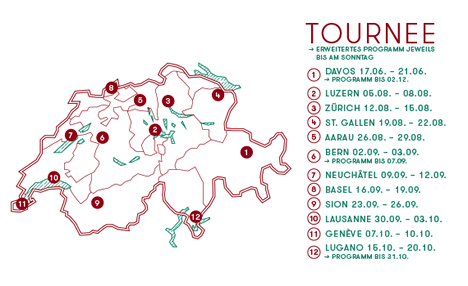
AuszeichnungenNobelpreise 2016 Forschende der Medizin, der Chemie und der Physik wurden für ihre Forschungstätigkeit geehrt:
Ehemaliges Chemieinstitut der Universität Freiburg erhält den «Chemical Landmark 2015» Die Akademie der Naturwissenschaften würdigt das ehemalige Chemieinstitut der Universität Freiburg als «Chemical Landmark» und die Universität Freiburg zeichnet den Nobelpreisträger Alan J. Heeger mit der «Fribourg Chaim Weizmann Lecture» aus. Chaim Weizmann selbst erarbeitete seine Promotion im ehemaligen Chemieinstitut, in dem Forscher auch erstmals Phthalocyanin synthetisierten.
Prix Média 2015 an Anja Jardine Anja Jardine beschreibt den ersten Versuch der Menschheit, in der Tiefsee Bergbau zu betreiben. Mit ihrem Artikel im NZZ Folio ist es ihr gelungen, die hochkomplexe Verquickung von Wissenschaft, Technik, Recht, Wirtschaft und Gesellschaft in einem stockdunklen Raum sichtbar zu machen.
Verleihung des Marie Heim-Vögtlin-Preises 2015 Am 23. September 2015 haben die Biologin Armelle Corpet und die Paleoklimatologin Anna Nele Meckler den Marie Heim-Vögtlin-Preis erhalten. Die MHV-Beiträge richten sich an Doktorandinnen und Postdoktorandinnen in der Schweiz, die ihre Forschungstätigkeit aufgrund ihrer familiären Situation unterbrechen oder reduzieren mussten. MHV ermöglicht die Verbesserung des wissenschaftlichen Profils und eine längerfristige Fortsetzung der wissenschaftlichen Karriere mit einem eigenen Forschungsprojekt.
Forschungspreise für transdisziplinäre Projekte mit Modellcharakter Das Projekt ‹Green Density› der EPFL hat den swiss-academies award for transdisciplinary research im Wert von 50'000 Franken gewonnen. Zudem wurden zwei Nachwuchsforschende der Universität Genf bzw. der Eawag für ihre disziplinenübergreifenden Arbeiten mit je 10'000 Franken ausgezeichnet. Für sein beispielhaftes Engagement für Inter- und Transdisziplinarität in den Wissenschaften wird Prof. Marcel Tanner gewürdigt, ehemaliger Direktor des Schweizerischen Tropen- und Public Health-Instituts Swiss TPH.
Amanz Gressly-Auszeichnung für Knochenarbeit Anlässlich ihrer 94. Jahresversammlung verlieh die Schweizerische Paläontologische Gesellschaft die Amanz Gressly-Auszeichnung an ihr langjähriges Mitglied Regina Hostettler für ihre besonderen Verdienste, Fossilien durch fachgerechte Bergung und Präparation der Allgemeinheit und der Forschung zugänglich zu machen und konservatorisch langzeitig oder zumindest in Form einer Kopie zu erhalten.
Bekanntgabe der Balzan Preisträger 2015 Die Preisgebiete der Internationalen Balzan Stiftung variieren jedes Jahr, um besonders innovative Forschung auf den Gebieten der Geistes- und Sozialwissenschaften, der Kunst sowie den Naturwissenschaften, der Physik, Mathematik und Medizin zu würdigen, die im Gegensatz zu traditionellen Wissenschaftsgebieten oftmals spezieller und interdisziplinärer ausgerichtet sind. Die Preisträger müssen die Hälfte des Preisgeldes für die Finanzierung von Forschungsprojekten verwenden, die vorzugsweise von jungen Wissenschaftlern und Forschern durchgeführt werden. Die Balzan Preise 2015 werden am 13. November in Bern verliehen.
|
|||||||
|
|
AGENDA
12. Juni - 14. November 2015
Einstein & Co: Zürich und der Nobelpreis
Der Lichthof des Satdthauses wird zur «Hall of Fame»: Zwölf ausgewählte Preisträger älterer und neuerer Zeit sind hier mit einem Foto ihres Lieblingsortes in Zürich vorgestellt und in illustrierten Portraits, die auf ihre Leistungen Bezug nehmen.
11-14 October 2015, Davos
World Resources Forum 2015
Boosting Resource Productivity by Adopting the Circular Economy
15. Oktober 2015, Alpines Museum, Bern
Bücherberge: Piz Buin. Literarische Erkundungen 1865–2015.
Der Piz Buin – ein Bücherberg? Der Piz Buin ist nicht nur der dritthöchste Berg der Silvretta, sondern mit Sicherheit der meist beschriebene. Das liegt an der Aufmerksamkeit, die ihm früh schon als höchster Erhebung Vorarlbergs entgegengebracht wurde, an seiner prominenten Grenzlage zwischen Österreich und der Schweiz und wohl auch am Wohlklang seines romanischen Namens – denn wer würde schon Hotels oder Sonnencreme nach einer «Ochsenspitze» benennen?
23.-24. Oktober 2015, Sargans
Workshop GEO — LOGISCH! 2015
Geologie gekonnt, spannend und verständlich an Laien vermitteln
Geologie beginnt oft mit einem Gestein, sei es an einem Aufschluss, in einer Kiesgrube, an einer Kiesbank, oder aus einer Gesteinssammlung. Wie können wir Laien an das Beobachten, Beschreiben, dann das Spekulieren und Hypothesen bilden, schlussendlich an die Interpretation von Gesteinen so heranführen, dass sie von der Komplexität nicht gleich überfordert und frustriert sind?
Solchen – und vielen anderen – Fragen wollen wir im Kurs konkret und praxisbezogen nachgehen. Probieren Sie verschiedene Methoden aus. Bringen Sie Ihre eigenen Erfahrungen ein, tauschen Sie sich mit Fachkollegen aus.
Der Kurs findet definitiv statt und wird auf Deutsch durchgeführt.
Tagung Grünflächenmanagement 2015
Wer trägt die Verantwortung, dass öffentliche oder halbprivate Grünräume qualitativ hochwertig gestaltet und nachhaltig bewirtschaftet werden? Ist diese Aufgabe primär in der Verantwortung der öffentlichen Hand? Lohnt es sich für Institutionen mit hohem Grünanteil diese Aufgaben durch eigenes Personal auszuführen?
5. November, Alpines Museum, Bern
Verleihung des Prix de Quervain 2015
Der Preis wird von der "Schweizerischen Kommission für Polar- und Höhenforschung" sowie der "Schweizerischen Kommission für die hochalpine Forschungsstation Jungfraujoch" gemeinsam verliehen. Die Teilnahme ist kostenlos, eine Anmeldung jedoch bis zum 25.10. erwünscht.
12. November 2015, Bern, 13:15-17:30
KFPE Annual Conference
Doing research in conflict areas: being sensitive to conflict and managing risks
Both aspects – security and sensitivity – will be discussed by representatives from different disciplines and illustrated with cases from various geographical contexts. The examples will guide reflection on how to conduct research in situations of conflict. Please register until 6 November 2015.
12.-14. November 2015, Zürich
100 years of the general theory of relativity
from simple physical concepts to a new notion of space, time and gravitation
Vor hundert Jahren, im November 1915, publizierte Albert Einstein seine bahnbrechenden Arbeiten zur Allgemeinen Relativitätstheorie. Aus diesem Anlass findet vom 12.-14. November 2015 an der ETH Zürich ein Symposium statt, das die Bedeutung dieser Arbeiten bis hin zur heutigen Forschung auf vielfältige Weise beleuchtet. Die Allgemeine Relativitätstheorie hat unsere Sicht auf die Entstehung des Universums wie auch die Entwicklung von Alltagstechnologien bis heute nachhaltig geprägt. Als Referenten konnten zahlreiche namhafte Wissenschaftler aus dem In- und Ausland gewonnen werden. Die Teilnahme am Kongress ist unentgeltlich.
20. November 2015, Bern
Symposium Anpassung an den Klimawandel 2015
Klimaszenarien: von der Forschung zur Anwendung
Das Klima wird sich in der Schweiz in Zukunft weiter verändern. Mit zunehmendem Klimawandel nehmen die erwarteten Auswirkungen stark zu. Der Klimawandel und die Anpassung an dessen Auswirkungen stellen die Gesellschaft vor zahlreiche Herausforderungen.
20. November 2015, Bern
Anpassung an Klimaextreme in einer föderalistisch strukturierten Gesellschaft
Forschende aus unterschiedlichen Disziplinen setzen sich am Oeschger-Zentrum mit Anpassungsstrategien für die Schweiz an den Klimawandel auseinander. In einem grossen Sinergia-Projekt suchen sie nach Konzepten, die einerseits Schutz vor den Klimafolgen versprechen und andererseits wirtschaftlich tragbar und politisch umzusetzen sind.
20.-21. November 2015, Basel
13th Swiss Geoscience Meeting The Department of Environmental Sciences of the University of Basel and the Platform Geosciences of the Swiss Academy of Sciences (SCNAT) cordially invite you to participate in the 13th Swiss Geoscience Meeting to be held on 20th and 21st November 2015 in Basel.
Mehr Informationen 7.-13. Dezember 2015, online
Swiss Computer Science Education Week
Warum Spiele nur spielen, wenn man sie selbst programmieren kann?! Und sie mit Freunden teilen kann, um sie auf Computern und sogar Smartphones zu spielen! Das bringt Spass und man kann dabei zudem viel lernen.
15. Januar 2016, 8:30-17:00, UniS, Bern
SWIFCOB 16
«Macht Biodiversität gesund?»
Die Biodiversität beeinflusst die Gesundheit von Tier und Mensch in vielfältiger Weise. Sie beeinflusst etwa das psychische Wohlergehen, das Immunsystem oder die Übertragung von Krankheiten. Könnten das Gesundheitswesen und der Naturschutz stärker voneinander profitieren? Die Tagung SWIFCOB 16 «Macht Biodiversität gesund?» informiert über neuste Forschungserkenntnisse und Initiativen und diskutiert mögliche Synergien zwischen der Erhaltung der Biodiversität und der Förderung der Gesundheit.
24.-26. Januar 2016, Rigi-Kulm
Rigi-Workshop, where disciplines meet
«Big answers from small packages: systems and synthetic biology of microbes»
Der Rigi-Workshop 2016 wird sich im Grenzgebiet von Mikrobiologie, Systembiologie und Synthetischer Biologie bewegen. Mikroorganismen gehören zu den einfachsten bekannten biologischen Systemen und bieten eine vielfältige Plattform für verschiedenste Anwendungen; von der Entwicklung von Nanomaschinen über die Veränderung von Stoffwechselwegen bis zur Herstellung komplett synthetischer Genome. Doktorierende und Post-Docs, die an solchen Fragestellungen interessiert sind, haben hier die Möglichkeit, sich mit erfahrenen Wissenschaftlern und untereinander auszutauschen und zu vernetzten. Die Sprache des Workshops ist Englisch.
15.-16. Februar 2016, Universität Lausanne
LS2 Annual Meeting 2016 Interdisciplinary sciences
Die Konferenz bietet eine breite Palette der Spitzenforschung der interdisziplinären Wissenschaft in den Bereichen der Naturwissenschaften (Molekular- und Zellbiologie, Physiologie, Proteomik, experimentelle Pharmakologie, Neurowissenschaften, Mikrobiologie, Pflanzenbiologie, chemische Biologie und vieles mehr).
16 February 2016, Lausanne
Research breakthroughs and social impact: young scientists debate synthetic biology
Emerging technologies have the potential to offer new solutions for society's challenges but also raise concerns about safety and ethical implications. At this round-table, young scientists from different fields will discuss the possible impact of synthetic biology, a maturing scientific discipline aiming to modify, rebuild and design biological systems. This event is organized by the Forum for Genetic Research and LS2 and is part of the LS2 Annual Meeting.
More information17. April 2015 bis März 2016, Kulturama, Stiftung Museum des Menschen, Englischviertelstrasse 9, Zürich
Körperbilder von Vesal bis zur virtuellen Realität
Die interaktive Sonderausstellung bietet eine Reise ins Innere des menschlichen Körpers und zeigt die Entwicklung der Anatomie von der Renaissance bis heute. Objekte, anatomische Präparate, historische Werke sowie Abbildungen, die durch modernste bildgebende Verfahren erzeugt wurden, Videos und interaktive Stationen führen die Besucherinnen und Besucher durch verschiedene Epochen und wissenschaftliche Disziplinen.
Wenn Sie den SCNAT-Newsletter in Zukunft nicht mehr erhalten möchten, können Sie sich hier abmelden: www.scnat.ch/Newsletter Akademie der Naturwissenschaften Schweiz (SCNAT) | Haus der Akademien | Laupenstrasse 7 | 3008 Bern
Pascal Blanc | Tel. 031 306 93 23 | www.scnat.ch
Bild: ETH-Bibliothek Zürich, Bildarchiv.
|
Chemical Landmark 2015 – Fribourg Chaim Weizmann Lecture 2015

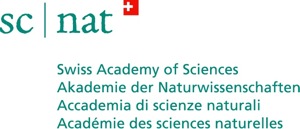 Die «Platform Chemistry» der Akademie der Naturwissenschaften Schweiz (SCNAT), die Freiburger Chemische Gesellschaft (FCG) und die Universität Freiburg laden ein zur Auszeichnung «Chemical Landmark 2015» und zur «Fribourg Chaim Weizmann Lecture 2015».
Die «Platform Chemistry» der Akademie der Naturwissenschaften Schweiz (SCNAT), die Freiburger Chemische Gesellschaft (FCG) und die Universität Freiburg laden ein zur Auszeichnung «Chemical Landmark 2015» und zur «Fribourg Chaim Weizmann Lecture 2015».
Dienstag, 13. Oktober 2015, 15.30 Uhr
Department of Chemistry, Chemin du Musée 9, 1700 Fribourg
Chemical Landmark 2015
Die siebte Auszeichnung einer «Historischen Stätte der Chemie» geht an das erste chemische Institut der Universität Freiburg.
Im Jahr 1896 wurde eine als Zeughaus genutzte Waggonfabrik zum ersten Chemieinstitut ausgebaut. Das Gebäude zeugt von der Übergangszeit der Industrialisierung und somit vom Vormarsch der Naturwissenschaften und beherbergte zwischen 1896 und 1974 die chemischen Institute der Universiät Freiburg. Es wurde erfolgreich eine Kombination der deutschen und französischen Bildungs- und Forschungskulturen gelebt, was z. B. zur Entdeckung des Farbstoffe moleküls Phthalocyanin führte, welches auch heute noch in ca. 25 Prozent der organischen Pigmente verwendet wird. Die Verleihung des Chemical Landmark wird in diesem Jahr mit der jährlichen Fribourg Chaim Weizmann Lectureship kombiniert.
Website SCSNAT, Chemical Landmarks
Fribourg Chaim Weizmann Lectureship
Chaim Weizmann erhielt im Jahre 1899 seinen Doktortitel in Chemie am oben genannten Chemieinstitut.
Der Preisträger 2015 ist der Nobelpreisträger Alan J. Heeger, der zum Thema «Creativity, Discovery and Risk – Nobel Prizes Past and Future» referieren wird.
Alan J. Heeger, Professor für Physik und Materialien an der University of California in Santa Barbara, erhielt im Jahr 2000, zusammen mit A. G. MacDiarmid und H. Shirakawa, den Nobelpreis in Chemie für die Entdeckung und Entwicklung leitfähiger Polymere. Er wird über die enge Verbindung zwischen Kreativität und Risikobereitschaft in der Wissen schaft reden. Anhand von Beispielen aus seinem Leben und vergangenen Nobelpreisen wird er die Kreativität von der Entdeckung unterscheiden. Er wird seine frühen Ergebnisse im Bereich leitfähiger Polymere zusammenfassen und dabei die Risiken in seiner Forschung veranschaulichen. Dann wird er über seine jetzigen wissenschaftlichen und unternehmerischen Aktivitäten erzählen, die von «Plastik»-Solarzellen, über flexible Polymer-Feldeffekttransistoren zu Biosensoren reichen.
Die «Platform Chemistry» der Akademie der Naturwissenschaften Schweiz (SCNAT), die Freiburger Chemische Gesellschaft (FCG) und die Universität Freiburg freuen sich, Sie zur Auszeichnung «Chemical Landmark 2015» und zur «Fribourg Chaim Weizmann Lecture 2015» nach Freiburg einzuladen.
Programm
| 15.30 | Ankunft/Kaffee |
| 16.00 | Begrüssung: Katharina Fromm, Jürg Pfister, Andreas Zumbühl, Beat Vonlanthen |
| 16.30 |
Laudatio/historische Retrospektive zum ehemaligen Chemieinstitut der Universität Freiburg durch Alexander von Zelewsky |
| 17.00 |
Einführung der FCWL: Katharina M. Fromm und Natalie Banerji |
| ab 18.00 | Apéro und Möglichkeit eines Spaziergangs zum ehemaligen Chemiegebäude. |
David Spichiger, SCS
08.10.2015
Nobel Prize in Chemistry 2015
The Nobel Prize in Chemistry 2015 was awarded jointly to Tomas Lindahl, Paul Modrich and Aziz Sancar "for mechanistic studies of DNA repair".
More details on the Website of the Chemistry Nobel Prize
Read the inverview to the topic with Prof. Christian Leumann, University of Bern
David Spichiger, SCS | SCNAT
07.10.2015
Official Press Release, 7 October 2015
The Royal Swedish Academy of Sciences has decided to award the Nobel Prize in Chemistry for 2015 to
Tomas Lindahl,
Francis Crick Institute and Clare Hall Laboratory, Hertfordshire, UK
Paul Modrich,
Howard Hughes Medical Institute and Duke University School of Medicine, Durham, NC, USA
and
Aziz Sancar,
University of North Carolina, Chapel Hill, NC, USA
“for mechanistic studies of DNA repair"
The cells’ toolbox for DNA repair
The Nobel Prize in Chemistry 2015 is awarded to Tomas Lindahl, Paul Modrich and Aziz Sancar for having mapped, at a molecular level, how cells repair damaged DNA and safeguard the genetic information. Their work has provided fundamental knowledge of how a living cell functions and is, for instance, used for the development of new cancer treatments.
Each day our DNA is damaged by UV radiation, free radicals and other carcinogenic substances, but even without such external attacks, a DNA molecule is inherently unstable. Thousands of spontaneous changes to a cell’s genome occur on a daily basis. Furthermore, defects can also arise when DNA is copied during cell division, a process that occurs several million times every day in the human body.
The reason our genetic material does not disintegrate into complete chemical chaos is that a host of molecular systems continuously monitor and repair DNA. The Nobel Prize in Chemistry 2015 awards three pioneering scientists who have mapped how several of these repair systems function at a detailed molecular level.
In the early 1970s, scientists believed that DNA was an extremely stable molecule, but Tomas Lindahl demonstrated that DNA decays at a rate that ought to have made the development of life on Earth impossible. This insight led him to discover a molecular machinery, base excision repair, which constantly counteracts the collapse of our DNA.
Aziz Sancar has mapped nucleotide excision repair, the mechanism that cells use to repair UV damage to DNA. People born with defects in this repair system will develop skin cancer if they are exposed to sunlight. The cell also utilises nucleotide excision repair to correct defects caused by mutagenic substances, among other things.
Paul Modrich has demonstrated how the cell corrects errors that occur when DNA is replicated during cell division. This mechanism, mismatch repair, reduces the error frequency during DNA replication by about a thousandfold. Congenital defects in mismatch repair are known, for example, to cause a hereditary variant of colon cancer.
The Nobel Laureates in Chemistry 2015 have provided fundamental insights into how cells function, knowledge that can be used, for instance, in the development of new cancer treatments.
Web Portal for Natural Sciences Switzerland
![]() Do you know the Natural Science Switzerland portal run and provided by the Swiss Academy of Science (SCNAT)? A wide range of activities for experts and laymen are promoted on this web portal and helps to strengthen the awareness and position of sciences in the public.
Do you know the Natural Science Switzerland portal run and provided by the Swiss Academy of Science (SCNAT)? A wide range of activities for experts and laymen are promoted on this web portal and helps to strengthen the awareness and position of sciences in the public.
The Swiss Chemical Society also runs a portal page and promotes its major offers to the community.
http://www.naturalsciences.ch/organisations/scg
David Spichiger, SCS
07.10.2015
Page 130 of 305

